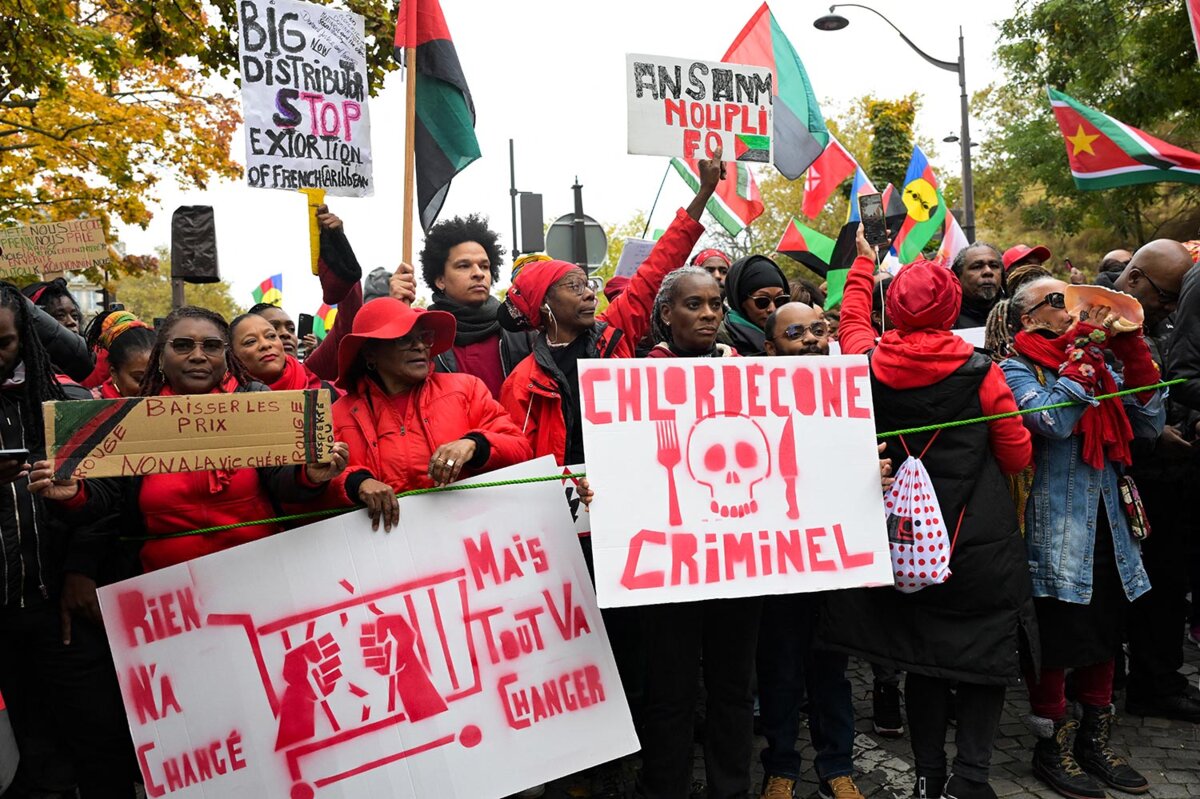In a landmark ruling this week, the Paris administrative court of appeal found that the French state was at fault for allowing the use of the carcinogenic insecticide chlordecone in the banana plantations in the French Caribbean islands of Martinique and Guadeloupe between 1970 and 1993, opening the door, at least partially, to a wider payment of damages for exposure to the insecticide.
Importantly, the use of chlordecone, primarily to exterminate a weevil known as the banana root borer, was banned on mainland France in 1990 but the government allowed plantation owners to continue to use it for a further three years on Martinique and Guadeloupe, despite warnings as of the late 1970s of its carcinogenic potential. For many islanders, the scandal remains a major cause of anger and distrust towards Paris.
Exposure to chlordecone is linked to several types of cancer – notably prostate cancer for which the two islands together have one of the highest rates in the world – along with neurological, developmental and reproductive complaints. Chlordecone, which was manufactured in the US before being banned there in 1976, is also a persistent pollutant and continues to contaminate the soil and watercourses on the islands today. It can be found in domestic drinking water supplies, obliging inhabitants of some districts to buy mineral water for consumption.
In its ruling made public on Tuesday, in a case brought by more than 1,300 applicants seeking compensation for exposure to chlordecone, the Paris court also found the French state at fault for not acting fast enough to destroy stocks of chlordecone left over after 1993, and similarly for the delay in tracing and cleaning the polluted areas. These were “characterised faults”, the appeal court magistrates found, rather than the lesser “faulty negligence” identified in the first hearing in June 2022.
“It results from the [official] investigation that the lateness with which the state put in place checks to find […] traces of chlordecone in the environment and in the food chain necessarily led to a delay of at least a decade in providing the population of Martinique and Guadeloupe with information that was indispensable for protecting themselves from contamination by chlordecone,” said the appeal court ruling.
A joint study carried out in 2013 and 2014 by France’s national watchdog for the safety of food, the environment and the workplace, ANSES, and the epidemiological monitoring agency Santé Publique France, found that 90% of the inhabitants of Martinique and Guadeloupe were exposed to chlordecone pollution.

Enlargement : Illustration 1

Furthermore, the court this week ordered the French state to award damages to those individuals found to be suffering from a “prejudice of anxiety” over their exposure to chlordecone. “The state must repair, when it is proven, the moral prejudice of anxiety of individuals enduringly exposed to this pollution,” wrote the magistrates in their ruling. Until now, reparations for exposure to chlordecone were paid only to male workers on banana plantations who developed prostate cancer, which was until now the only recognised occupational disease among plantation workers.
Tuesday’s ruling widening the criteria for compensation means that all individuals who can prove they suffer from the “prejudice of anxiety”, whether they worked on a plantation or not, and whether they were exposed to the insecticide before or after 1993, are entitled to compensation. The court defined the condition of anxiety as “resulting from being aware of having a high risk of developing a serious pathology” as a result of exposure to chlordecone.
For most of the more than 1,300 applicants, joined by three associations, who brought the case to appeal, the ruling represents a half-victory. Just 11 individuals were granted compensation on Tuesday, receiving damages of between 5,000 and 10,000 euros. Two of them were women who had suffered recurrent miscarriages.
“Pre- and post-natal” exposure to chlordecone, said the court, is associated with “a higher risk of premature birth and a risk of impacting upon the cognitive and behavioural development of the child”.
For Christophe Leguevaques, one of the lawyers for the applicants, the ruling represented “major progress”. “But for the pathologies for which there are not sufficient scientific elements [of proof of contamination], it’s absurd, 1,290 people are left on the side of the road, it’s unjust.”
For applicants seeking indemnities the court requires blood samples and environmental studies to establish an “effective exposure to pollution of the ground, waterways or the food chain” and an accompanying high risk of developing a serious illness.
Nevertheless, the Paris administrative appeal court has opened up the path for future compensation claims and has widened the restrictions on those eligible, while it is the first time that women are recognised as potential victims.
-------------------------
- The original French version of this report can be found here.
English version by Graham Tearse


